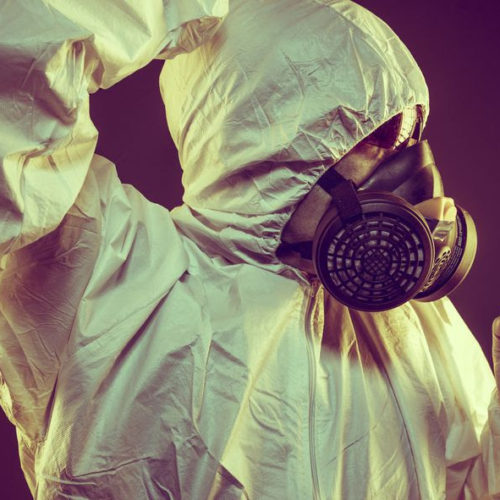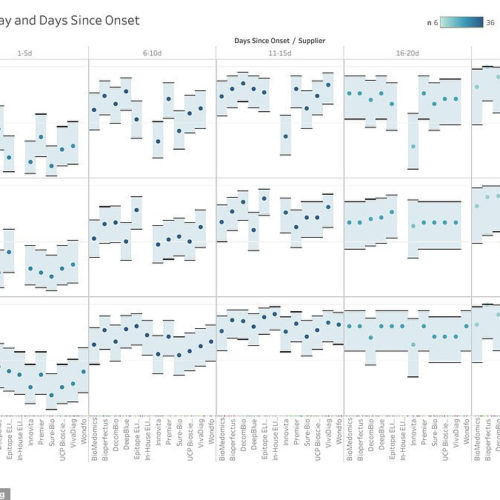Matthew R. Francis February 20, 2020 Follow all of PopSci’s COVID-19 coverage here, including travel advice, pregnancy concerns, and the latest findings on the virus itself. Scientists, medical professionals, and governments around the world are working to understand how the new respiratory disease ravaging Hubei province spreads—and how bad it could be for the rest...
Tag: <span>Immunity</span>
Which coronavirus antibody tests actually work? Study finds most were over 95% accurate with three over 99% reliable’
By JENNIFER SMITH FOR DAILYMAIL.COM Researchers in San Francisco and some in Massachusetts studied 14 different antibody tests Among them, only three returned results that were more than 99% specific in detecting antibodies One test, made by Sure Biotech which is registered in both the US and Hong Kong, had a 100% accuracy rate The...
Early immune response may improve cancer immunotherapies
by Natasha Wadlington, University of Illinois at Chicago In a paper published in the Journal of Biological Chemistry, University of Illinois at Chicago researchers and colleagues report a new mechanism for detecting foreign material during early immune responses. Viruses, bacteria and cancer have many ways to replicate and survive in our bodies. For viruses and...
Transition to exhaustion: Clues for cancer immunotherapy
Research on immune cells “exhausted” by chronic viral infection provides clues on how to refine cancer immunotherapy. The results are scheduled for publication in Immunity. Scientists at Emory Vaccine Center, led by Rafi Ahmed, Ph.D., have learned about exhausted CD8 T cells, based on studying mice with chronic viral infections. In the presence of persistent...
Researchers find protein promotes cancer, suppresses anti-tumor immunity
Targeting TBK1 in mice thwarts lung cancer development, frees immune response UNIVERSITY OF TEXAS M. D. ANDERSON CANCER CENTER HOUSTON — Researchers at The University of Texas MD Anderson Cancer Center have found that a protein involved in immune response to microbes also can fuel cancer development and suppress immune response to the disease. Working...
How a virus might protect against skin cancer
Previously, scientists have linked the presence of human papillomavirus to an increased risk of certain cancers. In a surprising twist, the latest research finds that the virus might help defend against skin cancer. Scientists find that immunity to certain strains of HPV may protect against skin cancer. There are more than 100Trusted Source strains of human papillomavirus (HPV), only...
A New Actor in Cancer Immunity
The immune system must strike an exquisite balance between vanquishing infections and cancer, while at the same time restraining its activity to avoid inadvertently attacking the body’s healthy tissues and organs. This balancing feat is accomplished by a host of regulatory genes that calibrate the immune response. When this calibration goes awry, the immune system...
Hope offered to patients with a rare autoimmune condition
NEWCASTLE UNIVERSITY A new study has shed light on a debilitating autoimmune condition by identifying a number of sub types of the disease which could lead to personalized treatment for patients. For the first time, scientists at Newcastle University, UK, have found there are at least four versions of primary Sjögren’s syndrome (PSS) – a...
The amazing influence of gut microbes in our immune system
by Particle Could autoimmune and allergic conditions like Crohn’s disease, multiple sclerosis or type 1 diabetes one day be treated with microbes in your gut? Inside your gut is a collective of bacteria, fungi and viruses known as the gut microbiota. Amazingly, they start to develop immediately after we’re born. With our mother’s bacteria quickly...
Scientists identify new potential treatment pathway for cardiovascular disease
by University of Sheffield Scientists from the University of Sheffield have identified a new potential treatment pathway for cardiovascular disease. Their research has shown for the first time that a protein expressed in a subset of immune cells contributes towards the build-up of fatty deposits in arteries, which leads to cardiovascular disease. These fatty deposits...


